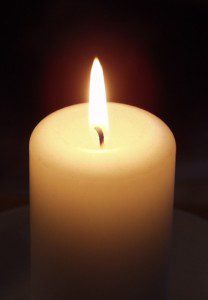 Several times when I have been asked about my spiritual journey, I tell people that I “converted” to Unitarian Universalism from being first, Episcopalian, and then, for many years, a Wiccan. And several times I have been told, almost with a wink, “isn’t that impossible?”
Several times when I have been asked about my spiritual journey, I tell people that I “converted” to Unitarian Universalism from being first, Episcopalian, and then, for many years, a Wiccan. And several times I have been told, almost with a wink, “isn’t that impossible?”
The implications are clear. People do not conceive of Unitarian Universalism, with its non-creedal faith and its reputation as being open-minded, as a set of dogmas that you adhere to or adopt in the process of turning away from another set of beliefs. It is not the same as abandoning, for example, Catholicism and the centrality of the Mass in favor of Judaism and study of the Torah. In essence, people find it hard to accept that you can “turn around” from accepting a creed towards accepting a religion that embraces your right to hold or not hold a creed.
For me, the conversion was not about beliefs- it was about orientation – and also expansion.
“Convertare”- to turn around. The Latin roots of the word are about physical turning, about therefore one’s orientation.
What conversion meant to me
For me, my conversion experience in Unitarian Universalism WAS a “turn around”. I came to realize that, although many aspects of my spiritual life were uplifting to me, I needed to “turn around” the compass that guided where I found the sources of my spiritual life.
I had come to see, both from personal experience and from observation, that the Neo-Pagan path I had embraced and taught for many years was guided by the force of personal experience, of wonder, and in a larger sense, by the knowledge of teachers and leaders in that movement. But this was not enough anymore.
My experience had been in groups, but Neo-Pagans are not by and large known by institutions but by traditions of experience. And, although some institutions exist, such as Cherry Hill Seminary and a few non-profit certified churches, contemporary Neo-Paganism, with its emphasis on autonomy, likely never will be known by its groups and institutions. Neo-Paganism is a self-determined path, with a strong streak of individualism. What guides Neo- paganismby and large is personal practice and leaders who make themselves known through teaching, writing, and in a few cases, activism and inter-faith work.
Unitarian Universalism, however, is a faith anchored in a theology of community. Our theology is grounded in the radical notion that through the bonds of covenant-making, through institutions that seek revelation from promises that we make to one another, we gain a well-spring of spiritual sustenance. Our values are clear, and are found in our principles and sources. We strive to live in right relationship with one another, and the principles that we are guided by are open to continual revision. In short, we are guided and oriented towards community, and, I would assert, do not cherish autonomy in the same degree that contemporary Neo-Paganism does.
It is not that one compass is, for any one person, better than another. I think every healthy faithful life needs both. All healthy, life-giving religions give room for both the personal and the institutional path.
Why I converted to Unitarian Universalism
I “converted” to Unitarian Universalism because I came to see that being tested and questioned about my values and assumptions by others- others that do not necessarily share my individual spiritual practice, but share my assumptions about what it means to grapple with the big questions, is the orientation I seek. A faith community that holds both of these values in tension- the individual and the communal at the same time- is the one I wish to be guided by, and the one towards wish I will turn.
While I was in seminary, my New Testament professor, Dr. Aliou Niang, explained for us so perfectly what happens when one “converts” and how another word is needed- expansion. Growing up in Senegal, his father wished him to become a Moslem, yet he was surrounded by the elders of his community and the culture of African Traditional Religion. He converted to Christianity, but for him he lost neither what he had learned from his father or from the elders in his village- he merely expanded his viewpoint, his essential self, each time.
For me, that is the best part of what being a Unitarian Universalist, and also a practicing, earth-centered pagan offers- an expansion of what I believe, and the ability to turn (or turn around) to whatever forces of guidance offer the truth for me while still being tested, and guided, by the values of a community.

















